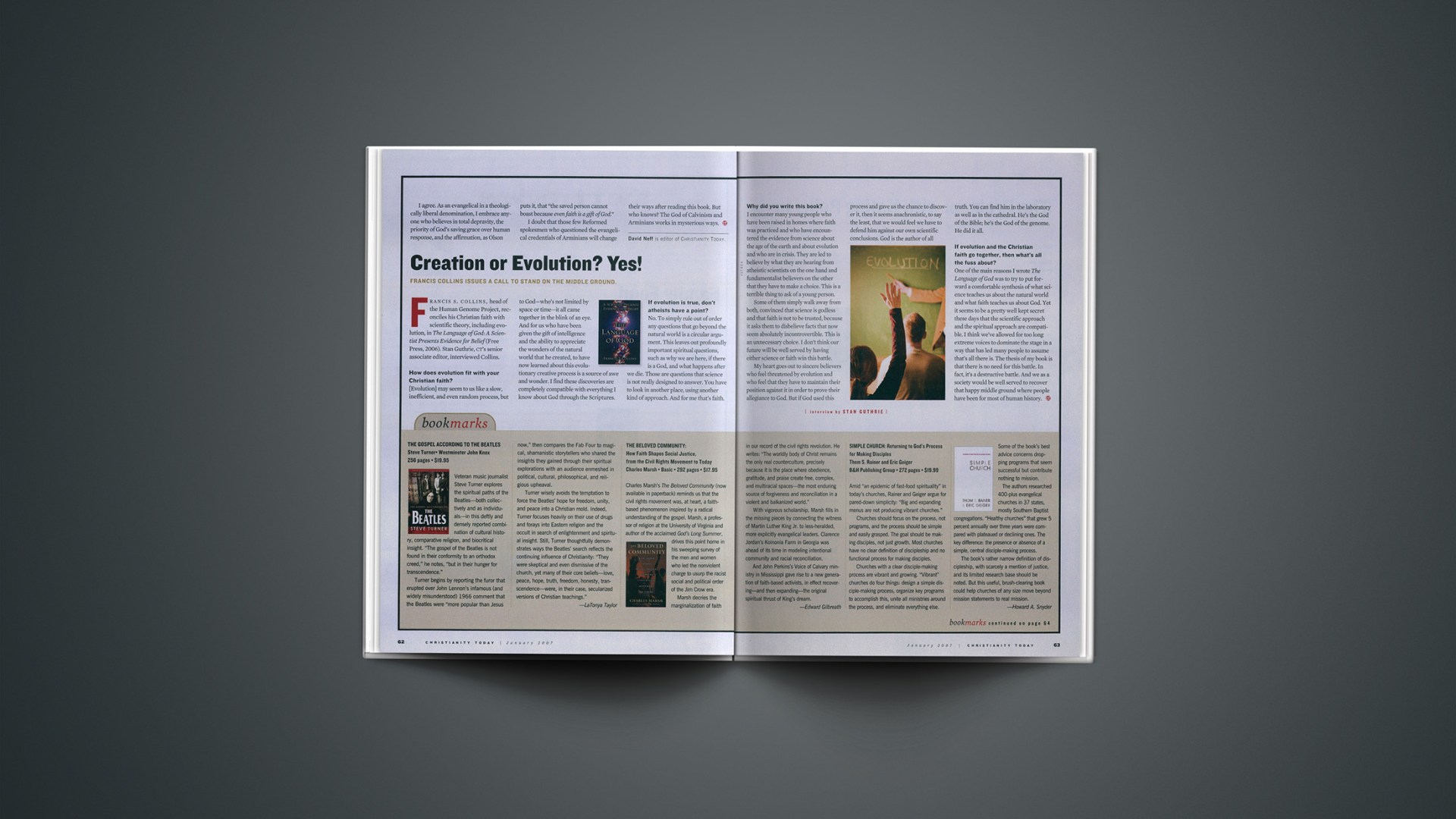Charles Marsh’s The Beloved Community (now available in paperback) reminds us that the civil rights movement was, at heart, a faith-based phenomenon inspired by a radical understanding of the gospel. Marsh, a professor of religion at the University of Virginia and author of the acclaimed God’s Long Summer, drives this point home in his sweeping survey of the men and women who led the nonviolent charge to usurp the racist social and political order of the Jim Crow era.
Marsh decries the marginalization of faith in our record of the civil rights revolution. He writes: “The worldly body of Christ remains the only real counterculture, precisely because it is the place where obedience, gratitude, and praise create free, complex, and multiracial spaces—the most enduring source of forgiveness and reconciliation in a violent and balkanized world.”
With vigorous scholarship, Marsh fills in the missing pieces by connecting the witness of Martin Luther King Jr. to less-heralded, more explicitly evangelical leaders. Clarence Jordan’s Koinonia Farm in Georgia was ahead of its time in modeling intentional community and racial reconciliation.
And John Perkins’s Voice of Calvary ministry in Mississippi gave rise to a new generation of faith-based activists, in effect recovering—and then expanding—the original spiritual thrust of King’s dream.
Copyright © 2007 Christianity Today. Click for reprint information.
Related Elsewhere:
The Beloved Community is available from ChristianBook.com, Amazon.com (paperback), and other retailers.
An interview with the author about The Beloved Community is available on our site.










